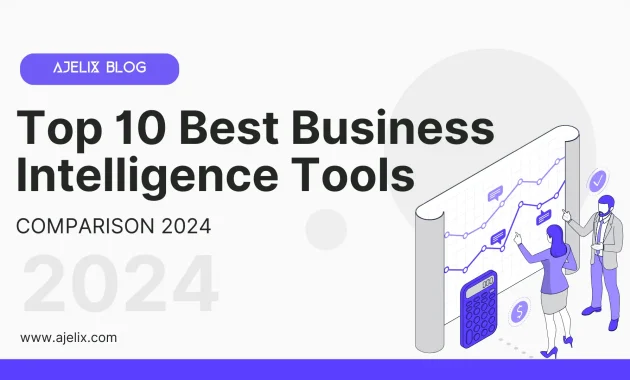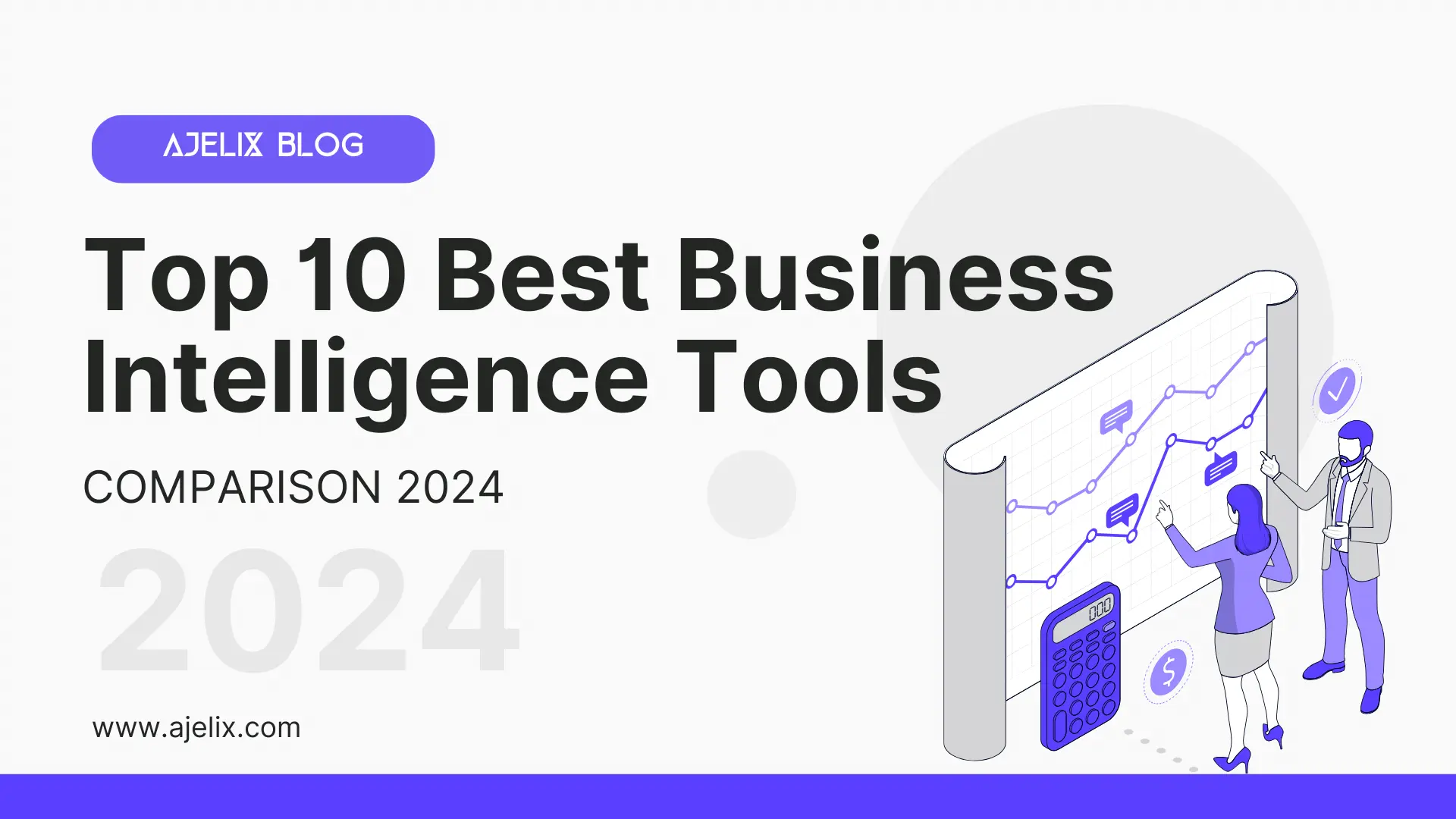
The Ultimate Guide to 10 Business Intelligence Tools: Maximize Your ROI
In today’s data-driven world, businesses are drowning in information. The challenge isn’t just collecting data; it’s understanding it. That’s where business intelligence (BI) tools come into play. These tools transform raw data into actionable insights. They empower organizations to make smarter decisions, optimize operations, and ultimately, boost their return on investment (ROI). This ultimate guide explores 10 of the best business intelligence tools available, offering a comprehensive overview to help you choose the right ones for your needs. We’ll delve into their features, benefits, and how they can help you maximize your ROI. The goal is to help businesses leverage their data effectively. The proper use of business intelligence tools is crucial.
Understanding the Power of Business Intelligence
Business intelligence tools are not just fancy dashboards. They are the engines that drive informed decision-making. They provide a 360-degree view of your business. This allows you to identify trends, patterns, and anomalies that might otherwise go unnoticed. These tools help in several ways. They improve operational efficiency, enhance customer satisfaction, and increase profitability. By analyzing historical and real-time data, BI tools enable businesses to predict future outcomes. This predictive capability is invaluable for strategic planning and risk management. The benefits extend across all departments. From sales and marketing to finance and operations, everyone can benefit. The key is selecting the right tools and implementing them effectively. Properly chosen business intelligence tools are essential.
Key Features to Look For in Business Intelligence Tools
When evaluating BI tools, several key features should be top of mind. These features are essential for maximizing ROI. Data visualization is paramount. Tools should offer interactive dashboards and reports. These allow users to easily understand complex data. Data integration capabilities are also vital. The tool should integrate with various data sources. These include databases, spreadsheets, and cloud services. Data analysis features are also important. Look for tools that offer advanced analytics, such as statistical analysis and predictive modeling. The ease of use is another critical factor. The tool should be user-friendly, with an intuitive interface. This ensures that everyone can use it, not just data scientists. Mobile access is increasingly important. Make sure the tool is accessible on mobile devices. This ensures that you can access insights anytime, anywhere. Scalability is also a key consideration. The tool should be able to handle growing data volumes. This will allow it to accommodate your future needs. The right business intelligence tools should have these features.
Top 10 Business Intelligence Tools to Consider
Here’s a look at ten of the leading business intelligence tools available. Each tool offers unique strengths and caters to different business needs. Consider your specific requirements when making your selection. These tools will help maximize your ROI.
1. Microsoft Power BI
Microsoft Power BI is a leading BI tool. It is known for its user-friendly interface and robust features. It integrates seamlessly with other Microsoft products. This makes it a popular choice for businesses already using the Microsoft ecosystem. Power BI offers a wide range of data visualization options. It also provides powerful data modeling and analysis capabilities. Its affordability makes it accessible to businesses of all sizes. [See also: Microsoft Power BI Tutorial for Beginners]
2. Tableau
Tableau is another industry leader. It is renowned for its stunning data visualizations and interactive dashboards. It offers a wide range of data connectors. This allows users to connect to virtually any data source. Tableau is known for its ease of use. It makes it accessible to both technical and non-technical users. Tableau is a great choice for businesses that prioritize data storytelling. It helps make data more engaging. [See also: Tableau vs. Power BI: Which BI Tool is Right for You?]
3. Qlik Sense
Qlik Sense is a powerful, self-service BI platform. It uses an associative data model. This allows users to explore data in a more intuitive way. Qlik Sense offers advanced analytics features. It also provides robust data governance capabilities. This makes it a good choice for businesses that need to ensure data accuracy and security. Qlik Sense is a good option for complex data analysis. It also helps to maximize ROI.
4. Sisense
Sisense is a BI platform designed for complex data. It specializes in handling large datasets. Sisense offers a wide range of features. It is known for its scalability and performance. It is a good choice for businesses that need to analyze vast amounts of data. Sisense is designed for large-scale deployments. This helps to maximize ROI.
5. Looker (Google Cloud)
Looker, now part of Google Cloud, is a modern BI platform. It focuses on data modeling and collaboration. Looker provides a single source of truth for data. It enables businesses to build consistent reports and dashboards. It is well-suited for businesses that prioritize data governance. Looker is a good option for those seeking advanced analytics.
6. Domo
Domo is a cloud-based BI platform. It offers a comprehensive suite of features. It includes data integration, visualization, and collaboration tools. Domo is designed for ease of use. It allows users to quickly create and share insights. Domo is a good choice for businesses that want a unified platform. It helps to maximize ROI.
7. SAP Analytics Cloud
SAP Analytics Cloud is a comprehensive BI solution. It is designed for businesses using SAP systems. It offers advanced analytics and planning capabilities. SAP Analytics Cloud seamlessly integrates with other SAP products. It is a good choice for businesses looking for a robust, enterprise-grade solution. It helps to maximize ROI.
8. Zoho Analytics
Zoho Analytics is a user-friendly, cloud-based BI tool. It is designed for small and medium-sized businesses. It offers a wide range of data connectors and visualization options. Zoho Analytics is known for its affordability and ease of use. It is a good choice for businesses on a budget. It helps to maximize ROI.
9. ThoughtSpot
ThoughtSpot is a search-driven analytics platform. It allows users to ask questions in plain language. It then generates insights automatically. ThoughtSpot is designed for ease of use. It makes it accessible to non-technical users. It is a good choice for businesses that want to empower everyone with data. It helps to maximize ROI.
10. MicroStrategy
MicroStrategy is an enterprise-grade BI platform. It offers a wide range of features. These include advanced analytics, mobile BI, and data governance. MicroStrategy is known for its scalability and security. It is a good choice for large enterprises with complex data needs. It helps to maximize ROI.
Implementing Business Intelligence Tools for Maximum ROI
Choosing the right BI tool is only the first step. Effective implementation is crucial. Start by defining your business goals and objectives. This will help you identify the key metrics you need to track. Then, select the BI tool that best aligns with your needs. Next, integrate the tool with your data sources. Ensure data quality and accuracy. Train your employees on how to use the tool effectively. Regularly monitor and analyze your data. Make adjustments as needed. This iterative approach will help you maximize your ROI. Successful implementation of business intelligence tools is important.
The Future of Business Intelligence
The BI landscape is constantly evolving. New technologies and trends are emerging. Artificial intelligence (AI) and machine learning (ML) are playing an increasingly important role. These technologies are automating data analysis. They are also providing more advanced insights. Cloud-based BI solutions are becoming more popular. They offer greater flexibility and scalability. Data governance and security are also becoming increasingly important. Businesses need to ensure that their data is protected. They must also comply with regulations. Staying informed about these trends is essential. It ensures that you are maximizing your ROI.
Conclusion: Choosing the Right Tools to Maximize ROI
Business intelligence tools are essential for success. They empower businesses to make data-driven decisions. This ultimate guide has explored 10 of the best tools available. It has provided a comprehensive overview of their features and benefits. Remember to choose the tools that best align with your specific needs. Implement them effectively to maximize your ROI. The right business intelligence tools can transform your business. They can drive growth and increase profitability. The key is to embrace data and use it wisely. The proper use of business intelligence tools is crucial. This will help to maximize ROI.

